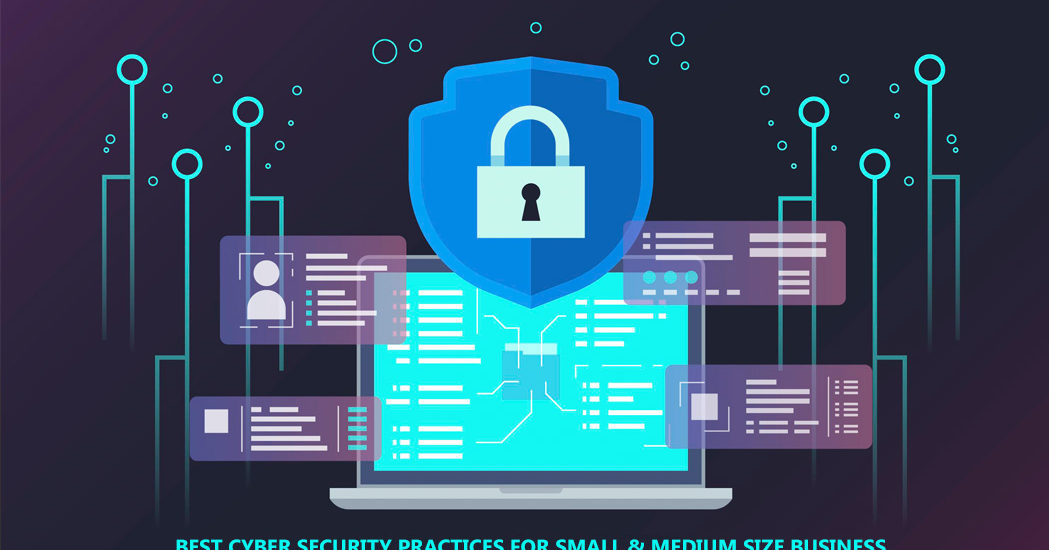It’s easy to have the mindset “not much to steal” for a small to medium business when it comes to cybersecurity, but that is the incorrect mindset to have in today’s world.
The U.S. Congressional, Small Business Committee, reports that 71 per cent of cyber-attacks happened to businesses with less than 100 employees.
Most cyber-attacks are to obtain personal data, such as a credit card, to identify theft. Although larger companies have more data to steal, small companies have less secure networks, making it easier to hack the network.

Below are the best cybersecurity practices for small to medium businesses:
- Document Cybersecurity policies – often, small businesses operate by word of mouth, but cybersecurity is an area where it is critical to document your protocols.
- Use a firewall – the first line of defense in a cyber attack is to use a firewall. A firewall provides a barrier between your data and cybercriminals. Many small and medium-sized companies are installing an internal firewall for additional protection. Also, they need to consider employees working from home and ensure they’ve established a firewall on their home networks as well.
- Remember mobile devices – with the increasing popularity of employees using personal devices for work, and wearable, such as fitness trackers or smartwatches with wireless capabilities, it is vital to include mobile devices on a policy. It might be worth having employees set up automatic security updates and require that company’s password policies apply to all mobile devices accessing the network.
- Implement safe password practices – changing passwords can be a pain, but using enterprise password management can help create secure passwords and manage them for your team. It is essential to have strong passwords for accounts to help guard against data breaches.
- Educate employees – employees can wear many hats in a small or medium-based business, making it essential that all employees accessing the network are trained on cybersecurity best practices and security policies. The policy will always be evolving as cybercriminals become more efficient at hacking.
- Regularly backup all data – you want to make sure you prevent as many attacks as possible, but having a data breach is still possible even if being precautious. Your company should be backing up data regularly, including word processing documents, databases, electronic spreadsheets, financial files, accounts receivable/payable files, and human resources files. Data can be backed up onto hardware devices or on the cloud. Check your backup software regularly to ensure that it is working correctly.
- Install anti-malware software – you don’t want to assume that your employees know never to open suspicious phishing emails, but it is something that could happen. Phishing attacks involve installing malware on employee’s computers when they click a link. Installing anti-malware software on your devices and network is essential for protection against a cyber attack.
- Use multifactor identification – multifactor authentication provides an extra layer of protection. Using employee’s cell numbers can be used as a second form of authentication.
- Use secure Wi-Fi – you should make sure that your business has a secure Wi-Fi connection. Also need to concern yourself with any employees working remotely. Public networks can be risky as it leaves vital company information up for grabs for hackers. When accessing essential data and company networks, employees must be using a secure, encrypted, and hidden Wi-Fi network. If employees work remotely, have them use a virtual private network (VPN) to secure your company information.
- Limit access to the network – the only people accessing your network should be authorized employees. Employees of different levels should have other access to company networks, accounts, and computers.
Final Thoughts
Cybersecurity is a moving target, significantly as cybercriminals advance their talents every year. For small or medium businesses to protect their data as best as possible, cybersecurity must be taken seriously. The above tips will help your company minimize the chance of experiencing a data breach and being vulnerable to a cybercriminal.